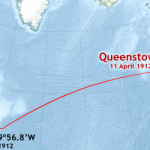“When it comes to the likelihood of emigration, on a scale from 1 to 10, the average response was slightly above 4, which means that young people are divided over whether they want to emigrate, but almost half of them think about leaving occasionally or frequently,” World Youth Alliance Croatia (WYAC) member Domagoj Dalbello said.
This shows that a significant number of young people are considering leaving the country. However, they do not leave on impulse, but rather consider the option for some time before leaving.
“Young people want 2.4 children on average, which is higher than the average number of children in Croatia. The reason why young people do not have more children is not exclusively because they do not want children, but that there are other discouraging circumstances”, Dalbello said.
Socially more active want more children, less inclined to emigrate
58% of young people vote in parliamentary elections, 65% vote in presidential elections and 60% in local elections while 7-9% never vote, depending on the type of elections. At the same time, close to 90% of young people believe participation in elections should be higher, which means that they are aware of the importance of political participation.
The survey also shows that young people who vote more are less inclined to emigrate, making political apathy and lack of belief that one can change anything, one of the emigration factors.
15% of young people are active in civil society, while 7% are active in a political party.
Youths who are more active in civil society want to have several children on average, but want to do so later in life. They also have less of a desire to emigrate.
Those active in a religious community want to have several children while younger and have a lower desire to emigrate. This means that while membership of a political party may be related with lower intentions to emigrate, it is not related to the desired number of children.
The average likelihood of emigration of young people in the public sector is 3.1 and in the private sector 4, which poses a problem in terms of economy.
Slightly more than half of young people live with their parents and those who have moved out did so mostly at the age of 18 or 19, which coincides with the age when they go to college. The survey found that the later young people leave their parents’ home, the later they start their own family.
The survey also shows that young people whose relatives live abroad are more likely to emigrate. Those who want to stay mention the country’s beauty and the wish to live in their homeland, while those who are more likely to emigrate cite corruption and tourism.
Expert: Public policies focus on elderly
Marin Strmota, a lecturer at the Zagreb Faculty of Economics and former secretary for demography who unexpectedly resigned from that post at a news conference in 2018, warned that the share of young people in the total population was decreasing, hence their voices were less represented.
“If the share of older citizens is growing, public policies will naturally focus on the older population because it carries more votes,” he said.
He noted that one should have clearer and more specific methods of attracting young people and that surveys should also be conducted locally because not all local government units have the same potential, problems and legacy.
Asked what he considered to be a bigger problem – the emigration of young people or the unwillingness to have children of those staying in the country, Strmota said that all negative processes were present – total and natural depopulation, generational depopulation and emigration depopulation.
An advisor at the Institute for Migration and Ethnic Studies, Sanja Klempić Bogadi, said that the state focuses too much on how to stimulate the return of those who have left instead of focusing on how to keep young people who are still in the country.
The WYAC survey covered 660 young people aged 18-30 with residence in Croatia and was conducted from 23 September to 1 December 2021 via social networks and e-mail.
For more, check out our lifestyle section.









